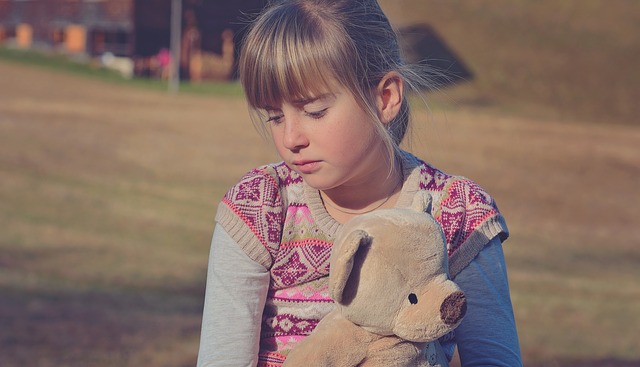|
Get Free Moving Quotes
|
|
Helping Kids with Depression After a Move |
|
Rating : 0.0/5
345 Views
|
|
|
|
|
|
 Moving is difficult for adults, but it can take an even greater toll on children, who must leave behind their school, friends, activities, town and everything they find familiar and comforting. Being thrust into an unfamiliar city can cause feelings of depression, isolation, loneliness, and in younger children, confusion. Moving is difficult for adults, but it can take an even greater toll on children, who must leave behind their school, friends, activities, town and everything they find familiar and comforting. Being thrust into an unfamiliar city can cause feelings of depression, isolation, loneliness, and in younger children, confusion.
Is your child having a difficult time adjusting to your move? Continue reading for guidelines on how to get him or her through this trying transition.
Signs of depression
Are your children exhibiting any of these signs or symptoms? They may be suffering from depression.
- Difficulty concentrating, remembering details and making decisions
- Fatigue or decreased energy
- Feelings of guilt, worthlessness and/or helplessness
- Feelings of hopelessness and/or pessimism
- Insomnia, early-morning wakefulness or excessive sleeping
- Irritability or restlessness
- Loss of interest in usual activities or hobbies
- Overeating or loss of appetite
- Persistent aches and pains, headaches, cramps or digestive issues
- Overwhelming sadness, anxiety or feelings of emptiness
- Thoughts of suicide or suicide attempts
TIP: If your child is experiencing signs of severe depression or has suicidal thoughts or actions, seek professional help immediately.
Young children
Due to their age, younger children will probably adjust to their new lives easier after a move. Even if adjusting to a new school is difficult, they will have an easier time making new friends and exploring their home than older kids and teenagers. To help in this transition, get involved in school or classroom activities. Having you around may help to ease stress and make your child feel more secure. It's also a great way to meet other parents and set up play dates.
Older children and teens
Older children, especially teenagers, may be more resentful about moving away. Help them cope with the move by getting them involved in the moving process, allowing them to pack their old rooms and set up their new ones just the way they like it. Make sure older kids know that you empathize with their situation and provide support without being overbearing -- remember, kids of all ages cope with feelings of depression in different ways.
Coping tips
To further ease the transition, stick to these three important tips to help children cope with your move.
- Discuss the move. Talk to your child about the move and how he or she is dealing with the adjustment period. Be supportive and always empathize with his or her feelings. While you might not have an immediate solution to the problem, listening to any concerns is a huge help.
- Remain a positive influence. Don't add to stress with your own negativity, maintain a positive attitude throughout the experience and focus on the advantages of the move. For example, talk about the benefits of your new city, new home or his or her new school!
- Anticipate poor behaviour. Increased stress may cause a number of negative behaviours, including mood swings, temper tantrums or accidents. Older children may become withdrawn, rebellious or disrespectful. Do your best to be understanding of these adverse reactions while still maintaining an air of authority.
|
| |